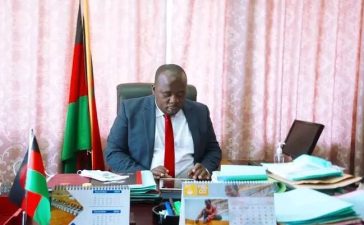President Peter Mutharika has unveiled his new cabinet, and the reaction from governance analysts has been swift and sharp. Instead of signaling national renewal, the appointments are being read as a reward slate for loyalists, reviving an inner circle rather than broadening leadership to reflect national competence.
The selection of Paulos Chisale as Deputy Minister of Home Affairs has drawn particular attention. His return to a key security-related portfolio is being seen not just as a personnel decision, but as a political statement — one that suggests a return to a governance culture driven by control, surveillance, and political protection.
Critics argue that ministries under this new arrangement risk becoming more focused on political patronage than public service delivery. In this context, cabinet posts appear less like strategic assignments for development and more like political pay-offs for unwavering allegiance.
Z. Allan Ntata, Executive Director of the Africa Politicojuridical Institute, delivered one of the most incisive assessments. In his commentary, Ntata warned that the current cabinet resembles “a politi-criminal syndicate wearing constitutional robes” — a system performing democratic rituals publicly while allegedly prioritizing insider protection and power consolidation behind closed doors.
According to Ntata, the new administration risks turning government into a network where loyalty is rewarded and silence becomes currency. He cautions that history is rarely kind to governments that confuse loyalty with legitimacy and power with accountability.
The broader implication is clear: instead of a reformist team prepared to rebuild national institutions, Malawi may be witnessing the return of governance built on political control rather than professional competence.
For many citizens hopeful for a fresh start, the cabinet’s composition raises uneasy questions. If this is the beginning, as critics suggest, it already carries worrying signs of governance centred on political survival rather than national progress.













